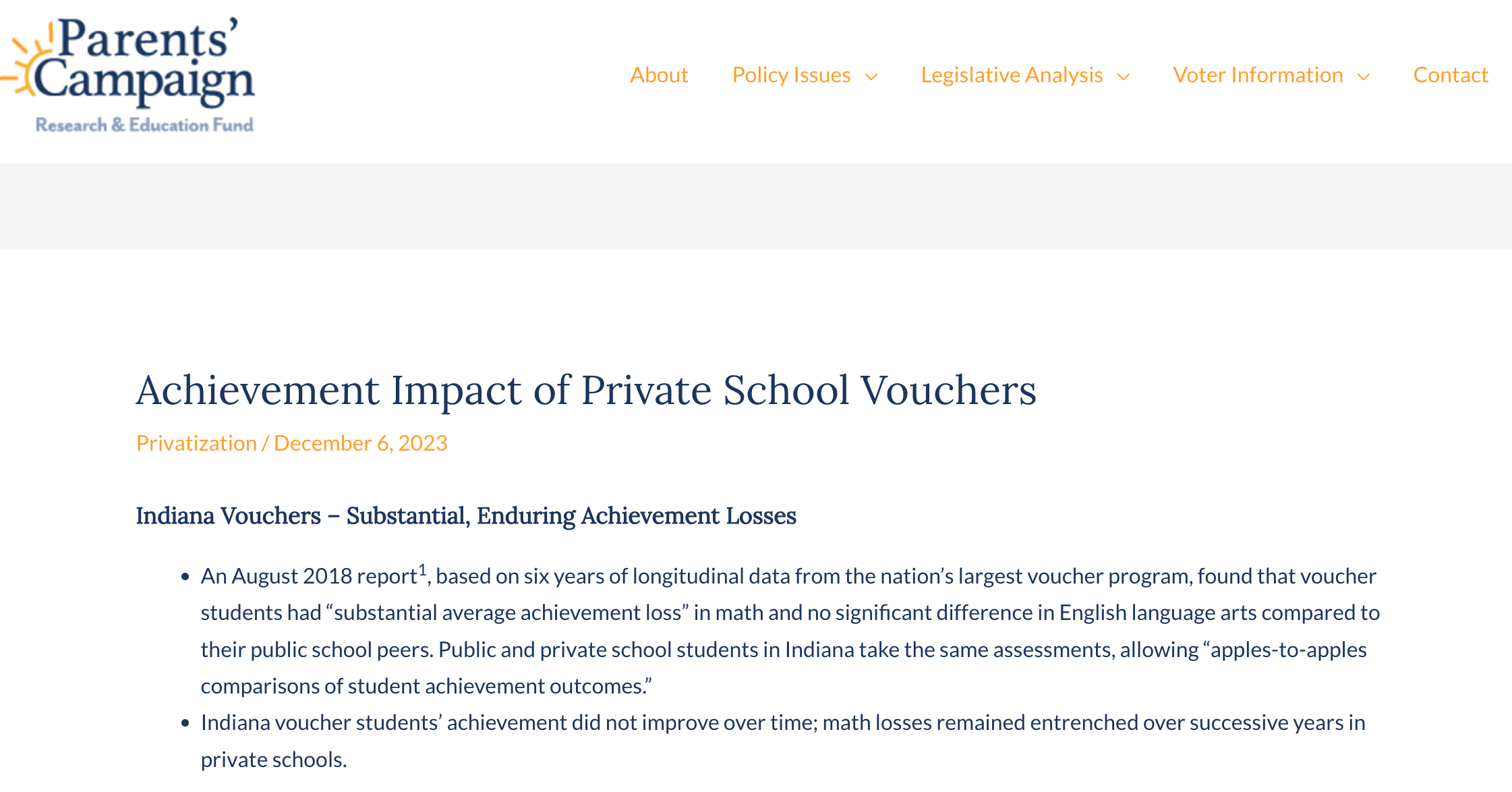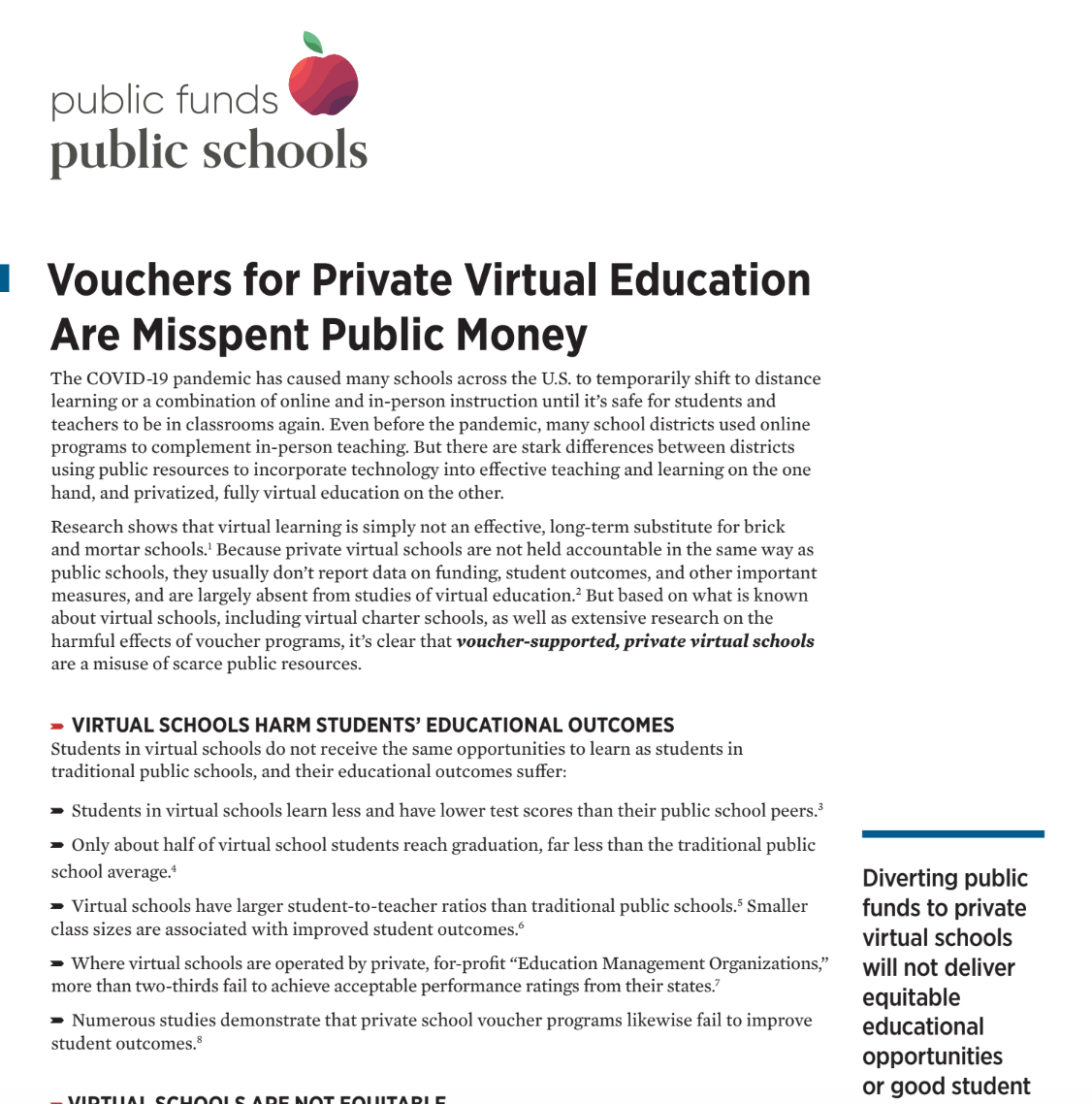
INSIGHT
Voucher programs do not provide the academic advantages that are promised.
Study after study has shown that voucher programs do not provide the academic advantages that are promised by pro-voucher advocates. In fact, some studies referenced below have shown significant losses in student achievement that persist over several years.
For additional reports and data, please see Studies, Reports, and Data.
The table, which is linked, highlights key student achievement results from six southern states. The chart shows that none of the selected school voucher programs with publicly accessible data demonstrably met their goals of increasing student achievement across grade levels, in specific subjects, or on statewide college-readiness assessments.
"It’s the $700 million answer to the question, “Why are Wisconsin taxpayers seeing a record number of school referendums?”
Voucher-funded schools. The once-small, Milwaukee-only experiment three decades ago is now a program that funds around 400 private, mostly religious schools in a “parental choice” program that has proven to be no better—and in some ways worse—than had those billions of dollars been invested in public schools. "
Tennessee’s education chief admits students using public money to attend private schools haven’t performed well on achievement tests, raising questions about whether the state should start another voucher program.
The Parents’ Campaign Research and Education Fund provides a myth vs. truth about the impact of school voucher programs.
The Parents’ Campaign Research and Education Fund provides a state by state snapshot on voucher programs impact on student achievement.
This National Education Association fact sheet sheds some light on Milwaukee’s school voucher programs. The research shows voucher schools are smaller than non-voucher private schools. They’re often financially distressed schools with high failure rates, and lower initial school quality indicators. A substantial portion of voucher schools are start-ups that did not exist before taxpayer support.
Research shows that virtual learning is simply not an effective, long-term substitute for brick and mortar schools.1 Because private virtual schools are not held accountable in the same way as public schools, they usually don’t report data on funding, student outcomes, and other important measures, and are largely absent from studies of virtual education. But based on what is known about virtual schools, including virtual charter schools, as well as extensive research on the harmful effects of voucher programs, it’s clear that voucher-supported, private virtual schools are a misuse of scarce public resources.
In recent months, state legislatures across the country have broadened efforts to subsidize private school tuition with taxpayer dollars. New proposals for these programs—collectively called school vouchers—have appeared in more than a dozen states and passed as major priorities for Republican governors like Kim Reynolds in Iowa and Sarah Huckabee Sanders in Arkansas. Since 2021, Arizona, Florida, Utah and West Virginia have also created or expanded voucher plans. Meanwhile, a handful states like Indiana, Louisiana, Ohio and Wisconsin have run voucher programs for years. But do school vouchers actually work? We need to focus on what research shows, and what that means for kids moving forward.








